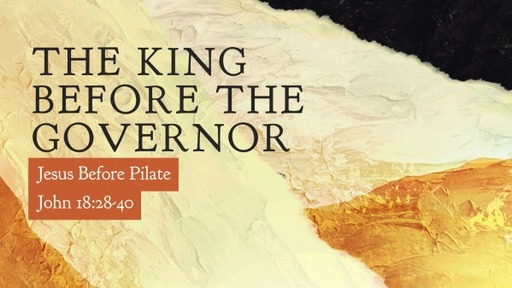The King Before The Governor

1. Outside, the accusation is brought, 18:28-32.
2. Inside, the interrogation and defense of the accused, 18:33-38a.
A. Interrogation, 33-35.
B. Defense, 36-38a.
3. The verdict given and compromised, 18:38b-40.
Dr. Barnhouse says:
Barabbas was the only man in the world who could say that Jesus Christ took his physical place. But I can say that Jesus Christ took my spiritual place. For it was I who deserved to die. It was I who deserved that the wrath of God should be poured upon me. I deserved the eternal punishment of the lake of fire. He was delivered up for my offenses. He was handed over to judgment because of my sins. This is why we speak of the substitutionary atonement. Christ was my substitute. He was satisfying the debt of divine justice and holiness. That is why I say that Christianity can be expressed in the three phrases: I deserved Hell; Jesus took my Hell; there is nothing left for me but his Heaven.4
Second Corinthians 5:21 says, “God made him who had no sin to be sin for us, that we might become the righteousness of God.” First Peter 2:24 adds, “He himself bore our sins in his body on the tree, so that we might die to sins and live for righteousness. By his wounds you have been healed.”
